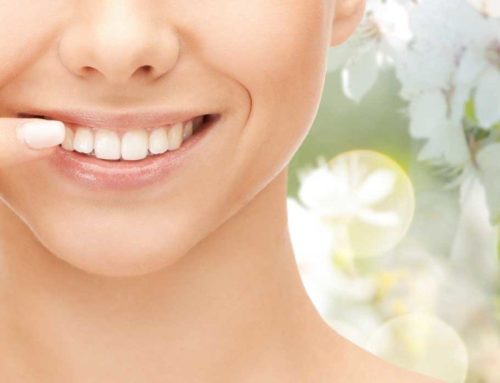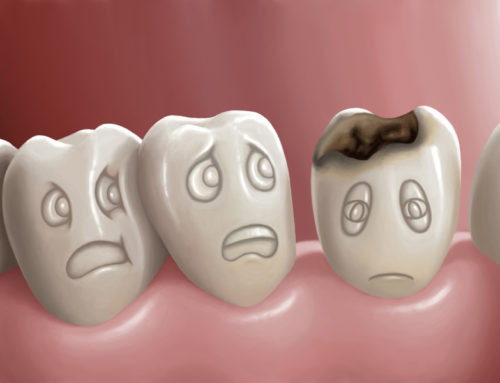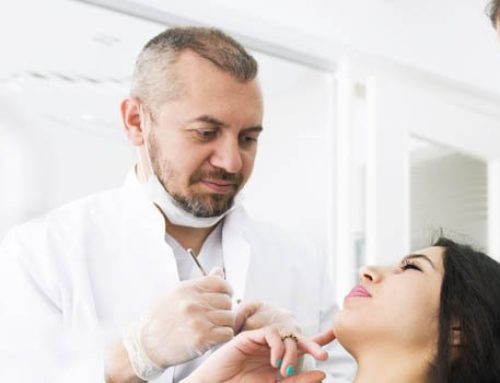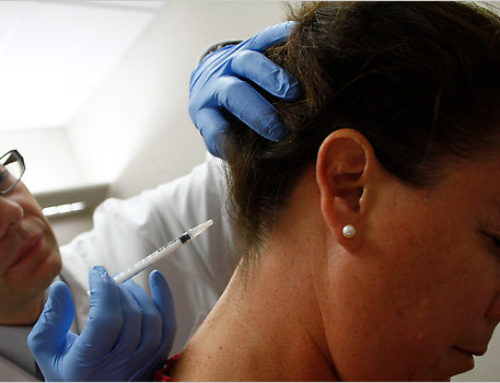A Holistic Approach for Dental Implant Care
Dental implants are a safe, proven method for replacing missing teeth with a permanent solution that provides a great level of comfort and convenience for the patient. The technology and techniques used to craft and attach dental implants has advanced significantly over the years, and modern methods and materials provide even better results and a higher quality of life for patients than ever before.
However, even with such advancements in materials and processes, it’s critical that patients take great care in ensuring that their oral health habits are effective in maintaining the results achieved by their dental implants over the long run. Proper care and good hygiene habits can help ensure that your dental implants, your overall oral health, and even your general well-being remain as good as possible. In this article, we will take a look at many of the steps that you can take to make sure that your dental implants stay healthy and contribute in a positive way to your overall health and well-being.
Proper Oral Care Habits for Dental Implants
Ensuring that your dental implants stay healthy begins with a solid routine of oral care habits that keeps your teeth, gums, and implants clean. While most of the things you’ll need to do are pretty standard when it comes to oral health, there are a few differences in regards to maintaining the implants themselves that you’ll need to keep in mind.
Brushing
Your brushing technique should follow the typical recommendations for cleaning teeth, using gentle but firm back-and-forth strokes and circular motions to scrub all the surfaces of the teeth as well as to stimulate and massage the surrounding gum areas. Your toothbrush should have soft bristles, and it’s recommended that you use a non-abrasive or low-abrasive toothpaste. Not all toothpastes are ideal for dental implants, and things like baking soda or strong stain removers should be avoided. Consult your dentist for more detailed recommendations on specific brands and types of toothpaste that are the best choices for your particular type of dental implants.
Flossing
The importance of regular flossing is well documented, and it’s one of the best ways to keep your mouth healthy and your gums strong. The technique for flossing around dental implants is essentially no different than how you would floss around any other teeth. However, the type of floss most commonly recommended is the non-waxed variety, or a floss specifically designed for dental implants. As with toothpaste, you’ll want to seek the advice of your dentist for recommendations on the type of floss best suited to your specific type of dental implants. For areas that are difficult to reach, consider using a floss threader to make things easier.
Oral Rinses
Mouthwash and oral rinses are a good way to add an extra bit of protection and cleaning to your entire mouth and helps to remove bacteria and small particles from areas that are hard to reach with either brushing or flossing. Choose an oral rinse that has anti-bacterial properties but avoid products that contain alcohol. Alcohol mouthwashes tend to dry out the mouth, leaving an uncomfortable feeling and actually making it more likely that bacteria will thrive and grow. Your dentist will be able to guide you to which brands and types of oral rinses are most effective.
Water Flossers & Oral Irrigators
If you’re looking to get the most out of your oral health habits, consider investing in a water flosser or oral irrigator to help remove even more dirt and plaque from your teeth and dental implants. These devices work well at removing bacteria and particles from in between teeth and under the gums and inhibiting the formation of plaque on your teeth. These should be used with care to avoid using too strong a setting and causing damage or bleeding to the gums. Be gentle, but also be thorough, for best results.
Regular Check-ups and Hygiene Treatments
Maintaining your teeth at home with a well-planned oral care routine is essential, but it doesn’t mean you can skip out on regular check-ups with your dentist and hygienist. As you know, these sessions are much more in-depth than what you can do yourself at home, and their experience and training will help identify any potential problems early and make sure that the most appropriate action is taken to keep your entire mouth healthy. It’s also a great opportunity to discuss other aspects of your oral health and get advice and answers that you can use to your advantage.
Be sure to ask for the latest and greatest information when it comes to caring for your dental implants, including products and techniques that you may want to adopt as part of your regular routine. The world of dental science continues to advance, so it’s wise to always stay in touch with the most current news and developments.
Diet and Exercise
When taking a holistic approach to caring for your dental implants, it’s important to look at the overall health of your entire body and the impact that your general well-being has on each part. Although it may not seem like going for a jog to improve your cardiovascular health would directly impact your dental implants, the improvements that aerobic exercise has on your circulation and blood flow can certainly have positive effects on all the parts of your body. Better physical fitness throughout your body results in a stronger immune system, better ability to heal, and lower likelihood of developing a huge range of health conditions. Don’t underestimate the effects that general fitness can have on all the parts of your body.
On that same note, an improved diet can have similar impacts on your overall health. There are many types of foods that are well known to have plenty of benefits to your health, such as boosting immune system function, improving digestion, aiding in sleep quality, and more. While a well-balanced diet is always a sensible approach to nutrition, there are also certain vitamins and minerals that help to promote healthy gums, strong teeth, and positive oral health. Some of these include calcium, which is an essential mineral for strong teeth and bones, vitamin C which helps boost the immune system as well as strengthening the collagen in the gums, and vitamin A which helps in the development of strong tooth enamel.
Other Healthy Living Aspects
In addition to these many factors that work towards obtaining a healthy and vibrant body, there are several habits and activities that should be avoided due to their negative health consequences. The most prominent of these habits that should be avoided is the use of any and all tobacco products. The harmful effects of tobacco on the body are indisputable, many of which take the form of diseases in the mouth. Gum disease, oral cancer, and tooth loss are just a few of the preventable effects that have been linked to the use of tobacco. Excess of alcohol consumption is also a major contributor to many of the same negative health conditions as tobacco and is another entirely preventable risk factor.
All of these elements, whether directly or indirectly, have an impact on your oral health and as a result should be considered as part of a holistic approach to caring for your dental implants.
Conclusion
If you’ve recently undergone a restorative dental implant procedure, or perhaps are in the early stages of the process of replacing one or more missing teeth with dental implants, it’s important to understand how you will care for your new teeth when the process is complete. Just like natural teeth, your dental implants need to be cared for, kept clean, monitored, and regularly inspected in order to ensure they stay healthy and strong. This advice and collection of tips is intended to equip you with more knowledge in order to promote good oral health habits and improve your overall well-being.
If you have any questions about any of this information or would like to discuss your dental health with one of our professionals, contact us today. We would be happy to assist you and we hope that you’ve found this information helpful!
Free Initial Consultation
Free consultations for all dental implants, bridges & crowns, braces, gum recession and full mouth reconstructions ($300 Value).
Contact us to book your appointment today.










